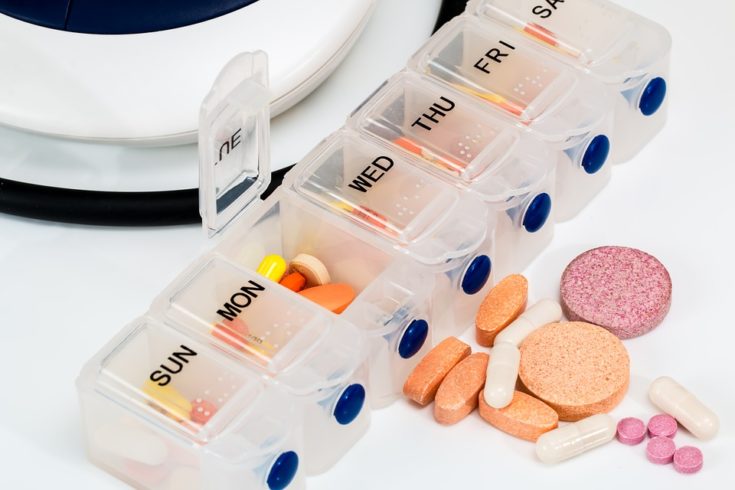
I have spent countless hours at doctor and specialist appointments over the last 20+ years mainly advocating on behalf of my twins who were born prematurely. In fact, as I write this, I’m sitting in a hospital waiting room while my daughter is having a medical procedure done. I also worked at a very busy fast-paced physicians’ clinic for almost a decade. Combine those two experiences with my knack for saving money, and I think I’m more than qualified to share these ways to save money at doctor’s appointments, especially since I personally use these tips.
Contents
Ways To Save Money At The Doctor
These tips will not only save you time and money during your doctor’s appointment but also beforehand and afterward as well.
Schedule Appointment Early Morning
We all know time is money, and the best time to make an appointment with your doctor or medical provider is first thing in the morning. Unless your doctor is late for work, chances are that you will not have to wait long in the waiting room when your appointment is the first one scheduled for the day.
The next best time to schedule your doctor’s appointment would be right after lunch if early morning is not good for you (or you like to sleep in like me). Many doctors’ offices block out time late morning for patients with last-minute urgent needs. Unfortunately, sometimes, these emergency cases overflow through lunch, and you’ll still end up waiting.
The absolute worst time to schedule a doctor’s appointment is at the end of the day. This is will be the longest waiting time period before you the doctor, and if the doctor is running behind, and possibly late for something else, the doctor may not be in the best of moods as well as in a hurry, so you may not get as good of care.
Fill out paperwork ahead of time
Another tip, I recommend is asking if you can fill out your paperwork ahead of time because we all know doctor’s offices make you do a ton of paperwork. Some offices may even allow you to fill out a questionnaire online beforehand which is the easiest and most environmentally friendly option. If the office is not totally digitally set up, they may have the forms that need to be filled out on their website. You can then download and print them so you can fill them out ahead of time. If not, ask if they can email you the forms, or as a last resort, snail mail them to you ahead of time.
Filling out your paperwork ahead of time will save time in the waiting room. Because if you are too slow filling out the forms, the person on the schedule after you may actually be called back first and seen before you. This causes even more time in the waiting room.
Get Medication Samples & Coupons
Free Samples
Asking the doctor’s office if they have any samples of the medication you are being prescribed is the easiest way to “save money”. If you forget to ask, call back and ask for the nurse.
Coupons / Vouchers
If the doctor’s office doesn’t have any free samples, they may have a coupon or voucher to get a free dosage or at least a discount on the medication that you need.
If the clinic doesn’t have any free samples, coupons, or vouchers, click here for 16 more ways to save on prescription drugs, yes sixteen!
Do Procedures & Tests In-Office
If you need any tests or procedures done, try to schedule them with your primary care physician (PCP) instead of going to a specialist or hospital if that is an option for you. I’ll cover why this saves you money below.
Insurance Coverage
Be sure to read the specifics of your health insurance policy to see what is all covered and at what percentages.
Here’s an example that how I wish I had read my policy more closely: I needed my bi-yearly routine bloodwork done for my hypothyroidism. The lab tech and nurse both struggled to get the needle in a good vein (my daughters and I are all “hard sticks”). So, they sent me to the hospital with four bruises from the failed sticks to get my bloodwork drawn there.
Had I gotten the bloodwork done while at the doctor’s office, where my insurance pays 100% for wellness checks, my insurance would have paid 100% for the bloodwork, and I would’ve had to pay nothing. But since I had the bloodwork done at the hospital, my insurance treated it as a hospital visit which went towards my deductible, my very high deductible. Since blood work is quite expensive, I had to pay hundreds of dollars for that blood work.
Specialist Visits
A general practitioner (GP) has the knowledge and experience to treat all common medical conditions, acute and chronic illnesses, as well as provide preventative care. That being said, your primary care doctor may be able to offer you the same services that a specialist does for a lower cost (and you can probably get in to see them sooner).
If the scope of your problem falls outside of their expertise, they can then refer you to a specialist. Most health insurance companies will pay a higher percentage or have you pay a lower copay at your PCP than at a specialist, so it doesn’t hurt to ask your doctor if they can treat you first. Plus some health insurances require that you have a referral from your PCP to the specialist you see. If not, they may pay less or not at all.
Here are some examples of diagnoses that a GP may be able to treat for you instead of seeing a specialty doctor:
- Dermatology – acne/rash/eczema/psoriasis treatment, wart removals, biopsy suspicious lesions for skin cancer (if cancerous, would refer on)
- Orthopedics – casts and splints for broken bones (would refer on for surgery if needed)
- Psychiatry – treatment for depression and anxiety (other more complex mental disorders may be referred on)
Two Birds, One Stone
I’m sure you’ve heard the saying “kill two birds with one stone” which means “achieving two things with one action”. And in the case of saving money at the doctor’s office, it would mean having the doctor look over two (or more) medical concerns you have during one visit. After personally working with physicians and previously dating a general practitioner, I do not recommend this, especially for complex problems. The reason being is not only about the money (you save money on an office visit call, whereas the provider loses money from an additional visit), but it’s about the time it takes as well as extra work for all of the staff involved.
If your provider asks if you have any other questions about anything, they were probably just being nice. It may be alright to ask a quick question about another medical condition, but be aware that they may ask you to schedule another appointment so they can better assess the situation.
Now if the provider notices something upon examining you and starts to ask you questions about it, then, by all means, let them discuss that with you. I don’t have a prime example, but at one of my daughter’s appointments, the surgeon noticed my (now-ex) husband’s Adam’s Apple was enlarged and told him he should have that checked out. It turned out that he needed surgery.
Health Fairs
Health fairs are educational events that provide general information about good health and preventative medicine. They also usually offer screenings and assessments for free or at a reduced discount that could potentially detect a problem. Some of the free assessments that I have seen at various health fairs have been free blood pressure checks, free skin cancer checks, free scoliosis checks, free hearing tests, and even free prostate checks.
If your insurance does not cover routine bloodwork or you have a high deductible, I suggest getting your blood drawn at a local health fair. Most health fairs offer testing at discounted rates to the public. They will not bill your insurance, but the prices are a fraction of normal costs so worth the visit.
Health fairs are usually run by a professional health fair organization, but they can also be run by medical providers, churches, schools, or work sites. Google “health fair near me” to find a health fair near you.
There is a medical health system near us that provides heart and vascular screenings for only $75. The program is called Planet Health, and it may have saved my cousin’s life. She went in for a screening because there is a history of heart problems in her family. During an ultrasound of the carotid artery in her neck, they noticed nodules on her thyroid and recommended that she have them checked out. Those nodules turned out to be cancerous! Luckily after numerous more tests and procedures, surgery to remove her thyroid and nodules, and radioactive treatment, she is now in remission. I go in next month for my heart screening appointment.
How To Reduce Your Doctor Bill
So far, I’ve given you tips to save time and money before and during a doctor’s visit, but there are still ways to save more after the fact, once you get the doctor’s bill.
Cash Discount
If you don’t have any insurance or have a high-deductible, ask if the provider offers a cash discount. Some physicians’ clinics offer cash discounts because it saves them time and money not having to bill insurance or take off insurance adjustments. You can ask the receptionist when you check out if they ask for a payment that day, or you can call the billing department after you receive the bill.
The office may also consider a cash discount if you pay with actual cash as they have to pay processing fees on credit and debit card transactions. Sometimes paying with a check may also suffice as cash as there are no fees associated with cashing a check. But unless they can verify and withdraw funds right away, accepting checks nowadays is risky for businesses.
Sometimes when I receive large medical bills (I consider large to be $1000 and over), I will call and ask if they will provide a discount for paying the bill in full. More often than not, I get told no, but you won’t know if you don’t ask.
Triple Check Your Bill
The LBL Group reports that up to 80% of medical bills contain errors, so double-check your medical bills when they arrive to make sure you are charged for the correct procedures and billed the right amount. Mistakes happen more than anyone realizes, and I feel bad when people don’t know any better and just pay the bill.
Then check that the bill matches up with the EOB (explanation of benefits) from your insurance provider. Sometimes the medical provider will forget to write off the difference between the charged amount and the insurance contracted rate. You would only know this if you compared the bill with your EOB.
Here are just three examples of incorrect billing and insurance problems that I’ve personally encountered and how I handled them:
- I had a colonoscopy, and my insurance denied paying for the anesthesia for the procedure saying it wasn’t covered. Now I know some may choose to stay awake for that procedure, but not me! It turned out that the hospital used the wrong procedure code for the anesthesia. Once fixed and resubmitted, my insurance paid.
- When I had Anthem BCBS of California, they paid 100% for my yearly gyno visit and mammogram. Six months later, both the OB-GYN office and the hospital rebilled me for those visits. They said BCBS took their money back saying I wasn’t covered! When I called Anthem, they couldn’t find me in the system. I ended up having to file a claim with the California Department of Insurance. I had to submit copies of my bank drafts to prove that I paid premiums for that time frame along with the original EOBs. They ruled in my favor, and Anthem repaid the claims, but what a fiasco! FYI, I no longer have Anthem.
- When my daughter had her wisdom teeth removed, they found 5 wisdom teeth instead of the normal four – no wonder she’s so smart! Insurance would only pay for four teeth to be removed, not five. I wrote a letter to the Appeals department address that was on the EOB with documentation to show she did indeed have five wisdom teeth, and then they did pay. Obviously having 5 wisdom teeth is hereditary as her father had the same problem with insurance.
Payment Plan
Many medical providers will work out a payment plan for your balance due by breaking the amount into multiple equal payments over a few months. This won’t save you any money in the long run but is a temporary solution if you are short on cash when the bill arrives. Be sure to ask if there are any fees associated with a payment plan though, and if so, it is probably not a good idea. A credit card with cash back or 0% financing may be a better option then.
HSA
If you have a Healthcare Savings Account (HSA), you can use those funds to pay your medical bills. HSA funds are untaxed so you would save on your income taxes by funneling your money through an HSA before paying your medical bills.
Barter with Doctor
Yes, bartering with your provider may be an option. If your provider is part of a big healthcare system, this may not be an option, but if your provider is self-employed or a part-owner of the clinic, it doesn’t hurt to ask if you can provide something of value in exchange for services.
Business owners barter services all of the time with other business owners. For example, I designed a website for my kids’ orthodontist to get a discount on braces for four kids!
A doctor that I used to work with accepted a high-dollar vacuum from a patient once in exchange for a procedure that wasn’t covered by her insurance. A dentist I know did dental work for a lady who in turn deep cleaned his house for free.
Financial Assistance
If the above options to reduce your medical bills fail, the next option is to ask the provider if they offer a financial assistance program. You will likely have paperwork to fill out as well as provide proof of income such as pay stubs or tax returns.
Most big healthcare systems budget so much money for write-offs each year. If you get denied earlier in the year, I suggest you keep making the minimum payments due so you don’t go to collections and then reapply towards the end of the year when they want to make sure and use all of the money in their budget.
But this also can go the other way if you get denied towards the end of the year because they are out of budget. Then you will want to reapply after the new year. You may want to ask what their calendar year is though as they may not use a traditional January-December calendar year.
Alternative Medicine
Alternative medicine is becoming an increasingly popular option for people who are looking for ways to take care of their health without relying solely on traditional Western medicine. Ayurvedic medicine, in particular, has gained a lot of attention in recent years as a holistic approach to healing. Ayurveda believes in treating the whole person, including their physical, mental, and spiritual well-being. This ancient practice uses a combination of herbs, diet, and lifestyle changes to prevent and treat illnesses. Many people turn to Ayurveda as an alternative to going to the doctor, and find that it can be just as effective in helping them maintain good health. Find Ayurvedic medicine near you.
Bring Candy
Just as Peter Shankman recommends bringing a bag of M&M for the airline attendants when flying (this is a great travel hack), I recommend bringing treats to the staff at the doctor’s office. Be sure to tell them that they are for the whole staff to share and not just for the doctor. I guarantee snacks will make your visit go more smoothly and everyone working will be more cheerful from the receptionist to the nurse.
How does bringing candy save you money, you ask? Candy usually makes people happy and makes you happy in return by making others happy. It’s another example of the law of attraction at work. And we know money and happiness always seem to find their way to coincide.
Conclusion
I hope at least one of the ways I recommended above will help you save money at a doctor’s visit. And if you have any other ways to save money at the doctor, I’d love to hear from you (and give you credit).
- How Health Affects Wealth: A Case Study Of A Pinched Nerve - July 2, 2024
- Exploring The Different Types Liquidation Businesses - June 20, 2024
- Google SERP Update of March 2024 Unkind To Bloggers - May 20, 2024





